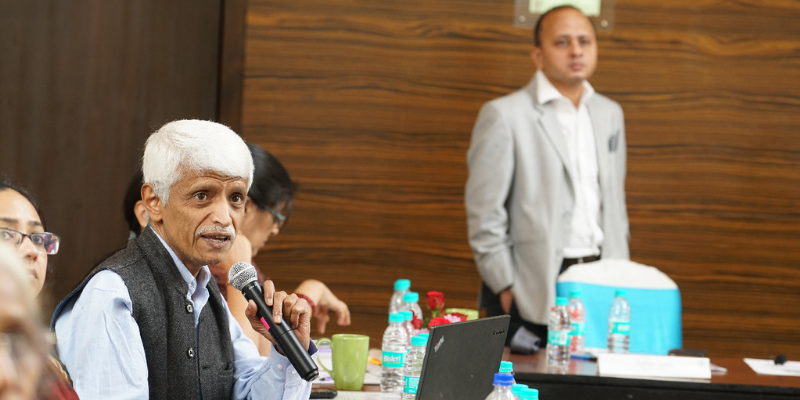An unforgettable tale about a group who pioneered social innovation despite cultural taboos
This article is powered by Don’t Offend India Network.
It was the year 2015. Six individuals sat together to contemplate bringing about social innovation. “There is a high amount of stigma and taboo associated with sexual matters in the Indian culture. Acknowledging one’s own interest in children is extremely difficult. Nearly impossible! Who would do that?” asks a perplexed Dr. Vasudeo Paralikar, Head of Psychiatry, King Edward Research Hospital and Research Centre (KEMHRC), Pune. Dr. Paralikar is hesitant to take the risk on behalf of KEMHRC.
In the words of Dr. Harish Shetty, a noted Psychiatrist in Mumbai, "How would the society respond and react in terms of fringe groups who might get very angry at what you propose to do? How people in power would respond to this is also a very big question.”

No one was ready to touch the project. And so, the project implementation came to a complete halt. The project is about providing treatment to non-offending paedophiles to prevent them from acting on their impulses. In order to implement the project, the team members, Dr. Klaus Beier (Charité University, Berlin), Dr. Laila Garda (KEMHRC, Pune), Dr Varsha Tol (KEMHRC, Pune), Dr. Vasudeo Paralikar (KEMHRC, Pune) and UVL Ananda (Bayer, Mumbai) need backing. Someone to assure steadfast support during any crisis and encourage them to push boundaries, reach newer milestones, and take calculated risks. That’s where leadership counts.
Sensitive and complex projects like these cannot be implemented without leadership that is both strong while, at the same time, participative. A participative leader, rather than taking autocratic decisions, seeks to involve other people in the process, including subordinates, peers, superiors and other stakeholders. This is the premise of Likert, R. (1967) The Human Organization: Its Management and Value (New York: McGraw-Hill).

The entire team worked together under the leadership of Suhas R Joshi (Chairperson, PPPSV) to make this project a reality. Suhas, the chair of the team pursues discussions with all the partners. He seeks the involvement of the team members to see beyond the cultural, societal, legal challenges that surmount the project and create a step-by-step implementation approach. At the same time, he believes in leading from the front. “I believe that several people deciding together make better decisions than one person alone, as long as the decision-making process is moderated prudently,” says Suhas.
With a leader to hold the reins, the group has successfully launched the Program for Primary Prevention of Sexual Violence (PPPSV), a collaborative initiative of King Edward Memorial Hospital Research Centre, Pune, Berlin Institute of Sexology at the Charité, Bayer Group in India and an advisory council of experts from India.
The key objective of the PPPSV project is to prevent child sexual abuse by treating the urges of non-offending paedophiles and preventing them from committing offences. A widespread global problem, Child Sexual Abuse (CSA), with grave life-long outcomes affects not just the victim, but also the offender, the families and the communities that surround them.
Globally, there are 1.9 billion children i.e. 27 percent of the world’s population that is affected by CSA. In India, a study done by the Ministry of Women and Child Development (MWCD) in 2007 cites that 53.22 percent of Indian children have faced some form of sexual abuse. CSA is an extensive problem and even the lowest prevalence includes a huge number of victims. Two main issues have been identified that make it difficult to estimate exactly how many children are victims of CSA. First, the way abuse is defined plays an important role. Second, the cases reported by official organisations usually underrate the number of victims, as many cases never get reported. So, how did the group manage to solve the problem of treating paedophiles especially in a country like India where so much taboo lingers around sexual matters?
Can’t wait to find out? Stay tuned for an inspiring documentary ‘The Path Of A Pioneer’ on Zee Business on January 26, 2019 at 6.30 PM for some eye-opening answers on how the entire team’s effort is impacting society in a large way today. #PathofPioneer











